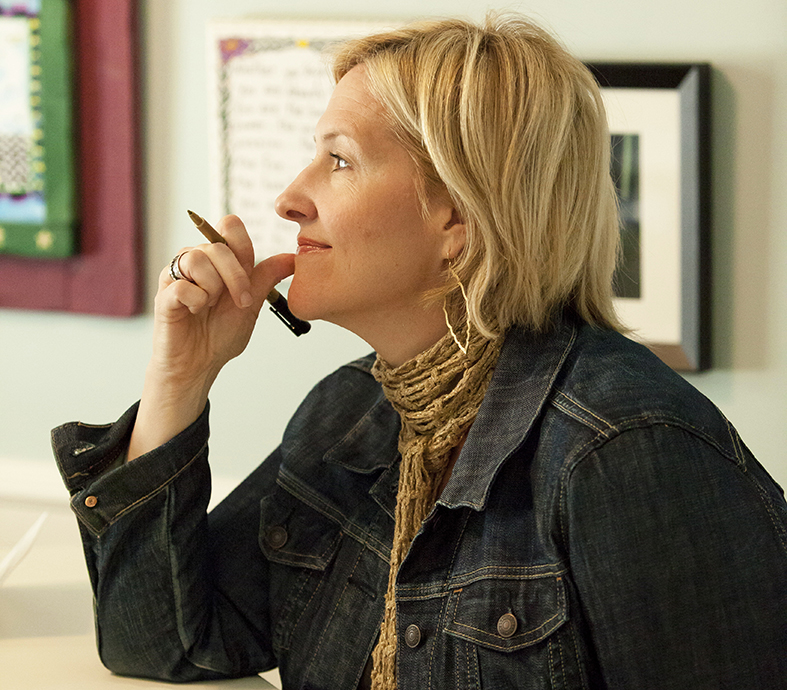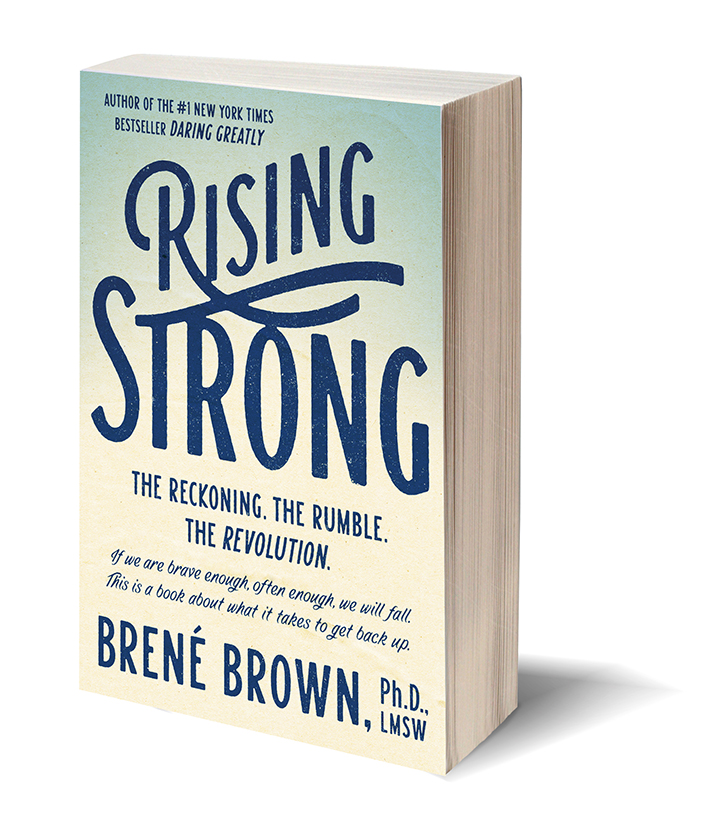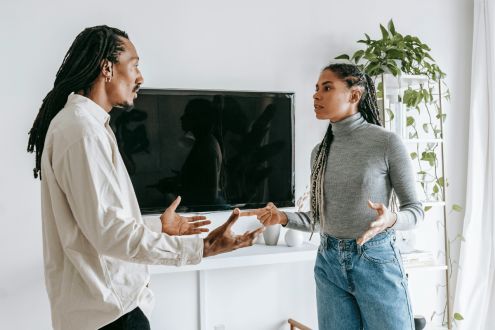Brené Brown on self-reflection
Katy Regan asks TED speaker, author of new book 'Rising Strong' and vulnerability expert Brené Brown for advice on identifying triggers, learning not to react to them and setting healthy boundaries

What would you say are your three main personal triggers or unhelpful inner narratives?
Brené Brown: I’m not enough, it’s not my fault and I should have been more perfect.
How can we know when we’re having a ‘trigger’ moment?
It’s often helpful to dig backwards into the process. Staying connected to your body is also very important; training yourself to see patterns in your behaviour, so the alarm bell sounds when you’re triggered. When I want to punch somebody, or start plotting a revenge narrative, I know it’s more likely I’m vulnerable, not really angry. The problem is, we weren’t raised to get curious about emotions – and it creates unnecessary conflict. Now, if someone ‘triggers’ me by sending a curt email, rather than stew over what I think their story is, I’ll say, ‘Hi, I just wanted to check everything’s OK between us, or if you were just firing off emails.’ Chances are they’ll say, ‘I’m so glad you asked, because I am pissed off, but not with you.’
In that ‘I don’t care… I deserve it!’ moment when we reach for the wine or chocolate, what steps can we take to make the right choice?
The thing about numbing versus comfort is that I’m a fan of comfort. A square of dark chocolate is a great comfort. Two bars? Not comfort. A glass of red wine with dinner is a pleasure, but a bottle of red wine isn’t. The line between comfort and numbing is the intention. Ask yourself, ‘Am I enjoying it or trying to make other feelings go away?’ Because if it’s the latter, the truth is, there’ll never be enough of what you don’t need – food, wine, Facebook or gambling – so constantly being weak to those things is an act of self-sabotage. There’s a Post-it note in my pantry that says: ‘Walk? Photograph?’ It means: ‘Are you hungry or do you need to go for a walk or do something else, like take some photographs?’
How long does it take to learn the skills of feeling an emotion and not acting it out?
The more you practice, the faster it happens. It depends how comfortable you are with emotion, too. If you were raised to believe you shouldn’t get curious about it, it will take longer. Keep at it and you will start to gain some faith in the process
You’re not afraid to show your vulnerability, but in reality, how easy do you find it not to act out?
Here’s the thing: you can know everything there is about emotion, but you still can’t engineer it. It’s human to want to act out. Also, it’s brain science: what I call the ‘rising strong’ process happens in our pre-frontal cortex – it’s a thinking, rational organising process, whereas our acting out happens in the limbic brain, which deals with emotion. So we’ll never have full control over that.
Could you give us a beginner’s guide to setting healthy boundaries?
Boundaries are no more than clarity about what is and isn’t OK. Setting them requires sharing what’s what with someone and then, the hard part, requires holding them accountable to what you set forth. The problem is, we tend to keep our boundaries internal and then when someone violates that, we’re angry
– and the person doesn’t even know what they did. Or, we make explicit what’s OK and what’s not, then when someone violates that, we don’t hold them accountable because it’s uncomfortable, which says these things are not that important to us.
The biggest narrative I’m working on right now is not being afraid to say no, of setting the boundaries I need to take care of me and my family. So, I try not to apologise. Instead, I say I appreciate the offer, but I’m not going to make the event because I have a conflict of commitments that day.
You talk in your latest book about feeling your way through painful emotions. But what can we do about the ‘wanting’ things we can’t automatically have, like a child or a relationship?
One of the reasons we don’t let go of the narrative when it’s hard, is because we have to grieve in order to move through it. But often we’d rather stay in resentment or longing because at least those are familiar emotions – but we’re mad! The problem is, they keep us stuck in that narrative. The death of a dream is what we call ‘ambiguous grief’; it’s not like an actual death, and our culture doesn’t have much tolerance for grief like that. But holding on to something and staying in resentment and self-blame is more difficult than walking into the darkness of grief. Our fear of the dark is often worse than the darkness itself.
You talk about finding purpose and meaning to live wholeheartedly. How did you find your purpose?
I don’t think anyone comes to a sense of purpose without some adversity. For me, when you’re face-down after a heartbreak or failure, that’s the best time to open your eyes, because you’ll be very clear on what’s important and what’s not. For me, that sense of purpose and meaning lives in the space between the ‘shitty first draft’ (my ‘go-to’ story I tell myself about my life when I’m upset), and the truth. My go-to story is always some version of: ‘I’m not enough’ or ‘I’m doing my best, get off my back’. But when I step back from those stories, I realise the people I feel most frustrated with, because they’re putting pressure on me, are the people who are trying to help me – and the truth is, I’m not good at asking for or accepting help.
I also find purpose and meaning in trying and failing, maybe succeeding, but always getting back up. Sometimes I realise I took a hard fall for something that wasn’t worth it – that’s not my purpose. Other times, I’ll think I’d rather be down here than not to have tried
at all because that was important to me.
Rising Strong by Brené Brown (Vermilion, £12.99), is out now
Photograph: Felix Sanchez










